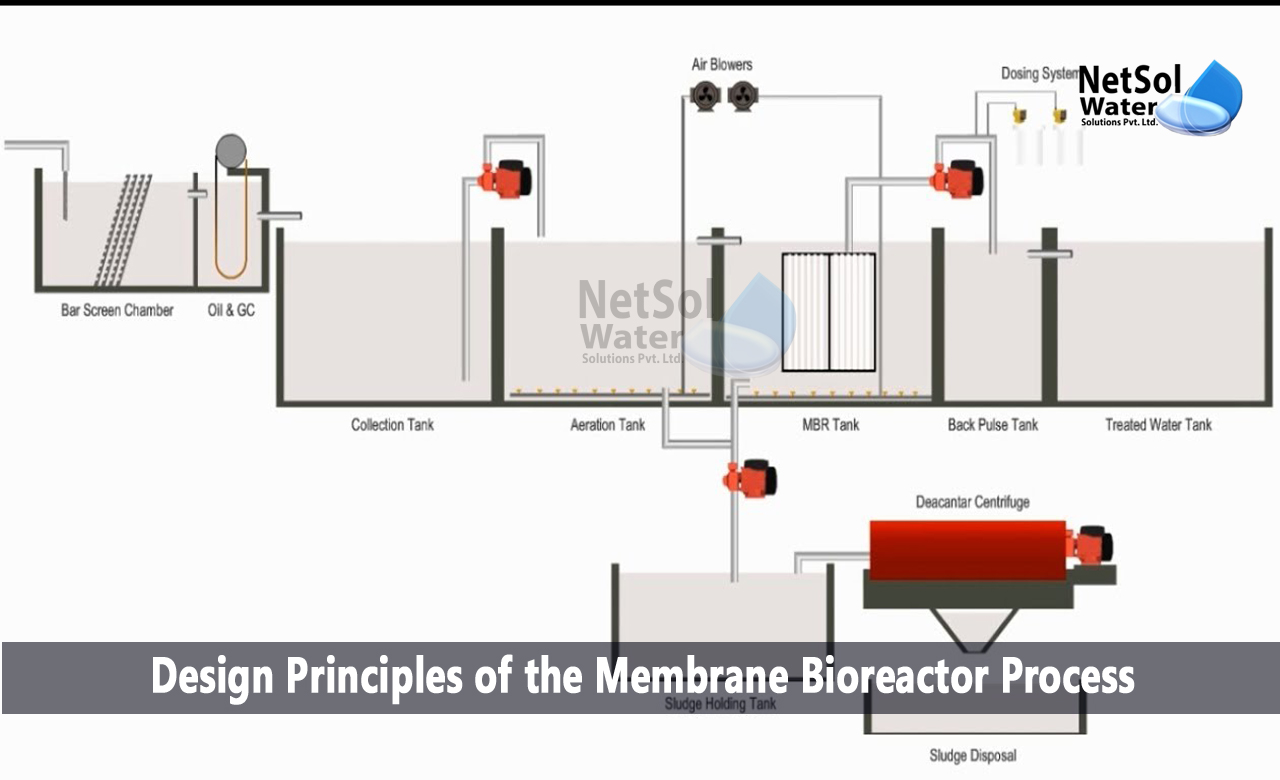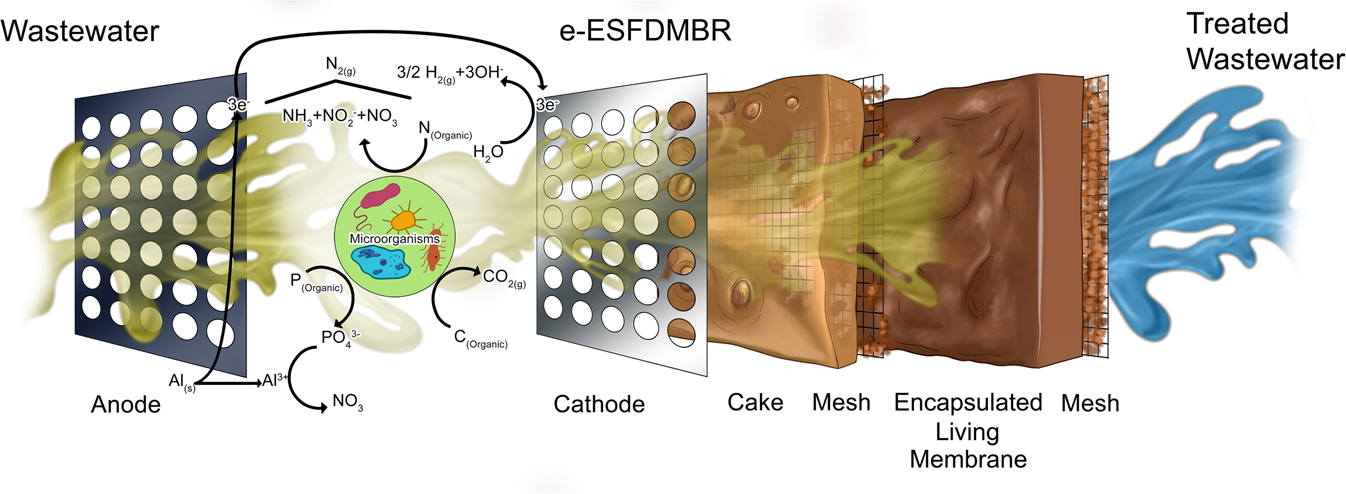How Membrane Layer Bioreactors Are Transforming Water Purification Equipments
The emergence of membrane bioreactors (MBRs) represents a significant advancement in the field of water purification, merging biological therapy processes with sophisticated membrane filtering technologies. This integration not just boosts the high quality of dealt with effluent however likewise addresses city room restraints, making MBRs especially suitable for densely populated areas. As international water shortage escalates, the function of MBRs in facilitating drinkable water reuse and sustainable water monitoring ends up being significantly critical. Yet, the implications of this innovation extend beyond effectiveness-- what obstacles and opportunities exist ahead for its extensive execution?
Summary of Membrane Layer Bioreactors
Membrane layer bioreactors (MBRs) stand for a substantial innovation in water filtration modern technology, as they incorporate biological therapy procedures with membrane layer purification. This assimilation enhances the performance of wastewater therapy by using microorganisms to weaken organic pollutants while simultaneously using semi-permeable membranes to different cured water from suspended solids and pathogens.
The MBR system generally contains an organic reactor where the microbial populace metabolizes impurities, complied with by a membrane filtering unit that keeps biomass and allows only tidy water to go through. This twin performance results in greater effluent high quality contrasted to traditional therapy techniques. MBRs can be run in both batch and continual flow settings, offering adaptability in design and application.
They also allow the healing of water for reuse, hence adding to water sustainability initiatives. On the whole, MBRs are at the leading edge of boosting water treatment performance and quality, showcasing the potential for cutting-edge solutions in environmental management.
Benefits of MBR Innovation
The integration of organic therapy with membrane layer purification supplies numerous benefits for water purification processes. Among the key benefits of Membrane layer Bioreactor (MBR) technology is its capacity to effectively eliminate both inorganic and natural pollutants, resulting in high-grade effluent. The membrane layers work as a physical barrier, avoiding suspended solids and virus from going through, which enhances the general security and reliability of cured water.
Additionally, MBR systems call for a smaller impact compared to standard treatment approaches, enabling much more effective space application. This portable layout is especially helpful in urban setups where land is restricted. MBRs likewise show functional adaptability, fitting differing influent high qualities and circulation prices without significant performance destruction.
Moreover, the process offers boosted nutrient elimination capabilities, specifically for nitrogen and phosphorus, which are essential for preventing eutrophication in receiving waters. The minimized sludge manufacturing connected with MBR innovation also converts to decrease disposal costs, making it an affordable remedy in the future - Membrane Bioreactor. In general, the benefits of MBR modern technology position it as a leading choice for innovative and lasting water filtration systems, resolving both ecological and economic issues
Applications in Water Filtration
Applications of Membrane Layer Bioreactor (MBR) technology in water filtration are diverse and impactful, resolving numerous therapy needs across several sectors. MBRs successfully combine biological treatment procedures with membrane filtering, making them excellent for metropolitan wastewater treatment, commercial effluent monitoring, and even safe and clean water reuse campaigns.
In metropolitan settings, MBRs are increasingly employed to boost the top quality of dealt with wastewater, enabling for compliance with stringent discharge laws and assisting in the recycling of water for irrigation and non-potable uses. Their small style also makes them appropriate for metropolitan environments where space is limited.
Industrially, MBR modern technology is utilized to treat procedure water and wastewater, especially in industries such as food and drink, pharmaceuticals, and textiles. By successfully eliminating impurities and put on hold solids, MBRs assist industries reduce environmental impacts while recuperating important resources from wastewater streams.
In Addition, MBRs are acquiring traction in decentralized water therapy applications, where linked here small systems can be deployed in remote areas or developing areas. This versatility makes it possible for neighborhoods to achieve lasting water administration remedies, boosting access to tidy water while reducing dependence on traditional treatment techniques.
Situation Research Studies and Success Stories

In one more example, a fabric manufacturing center in Bangladesh took on MBR modern technology to address its wastewater difficulties. The system reduced chemical oxygen need (COD) levels from 1,200 mg/L to much less than 100 mg/L, thus fulfilling governing criteria and substantially decreasing ecological influence.
The College of Cape Community's MBR installment has shown efficient in dealing with greywater for non-potable reuse on campus. This project not only preserves safe and clean water yet also serves as an instructional design for lasting techniques.
In addition, a fish and shellfish handling plant in Norway made use of MBR technology to treat effluents containing high levels of raw material, attaining over 90% contaminant removal. These study emphasize MBR innovation's versatility and its crucial duty in improving water quality throughout diverse applications.
Future of Water Therapy Solutions
As global water shortage and contamination difficulties escalate, innovative water therapy services are ending up being significantly important to make sure sustainable accessibility to clean important link water. The future of water treatment lies in the assimilation of advanced modern technologies that improve the efficiency and performance of filtration processes. Membrane layer bioreactors (MBRs) go to the forefront of this advancement, integrating organic treatment with membrane layer filtration to create high-grade effluent appropriate for numerous applications.

Emerging patterns such as resource healing from wastewater, including nutrients and power, will certainly better transform treatment facilities right into eco-friendly centers. Additionally, innovations in nanotechnology and membrane products assure boosted efficiency and long life of purification systems.

Conclusion
In final thought, membrane bioreactors represent a considerable advancement in water purification innovations, effectively integrating organic therapy with sophisticated membrane filtering. The numerous benefits, including boosted effluent top quality and reduced spatial demands, make MBRs specifically ideal for urban applications. Their duty in safe and clean water reuse and sustainable water management highlights their significance in resolving international water shortage difficulties. Continued r & d will further enhance the effectiveness and adoption of MBR technology, making sure a resistant navigate to these guys future for water treatment remedies.
The emergence of membrane bioreactors (MBRs) represents a substantial innovation in the area of water filtration, combining organic treatment procedures with advanced membrane layer purification innovations. As international water scarcity intensifies, the duty of MBRs in assisting in drinkable water reuse and sustainable water administration comes to be significantly essential. They likewise allow the recuperation of water for reuse, thus contributing to water sustainability initiatives.As global water deficiency and contamination obstacles intensify, cutting-edge water therapy options are ending up being increasingly essential to make certain lasting access to clean water. Their duty in potable water reuse and lasting water administration highlights their value in addressing worldwide water shortage challenges.